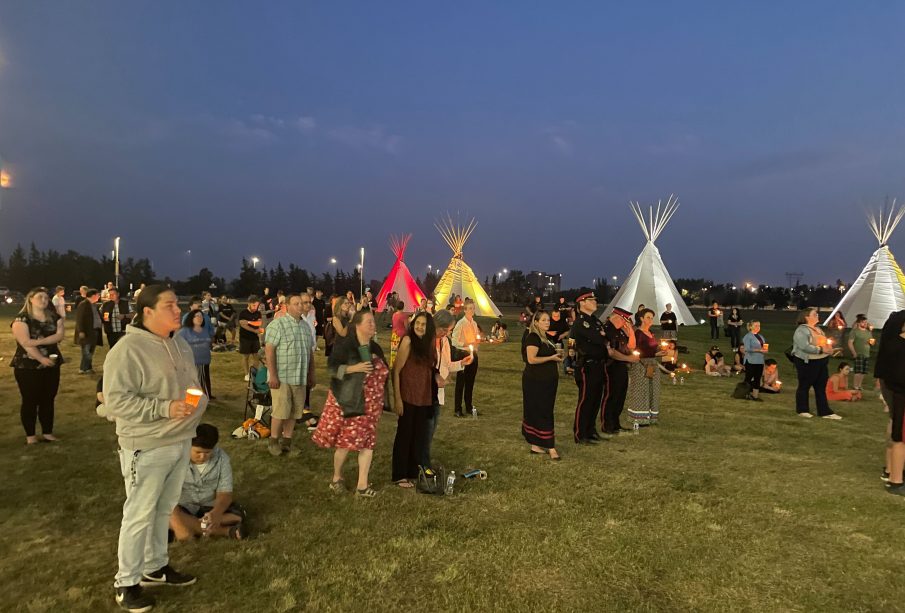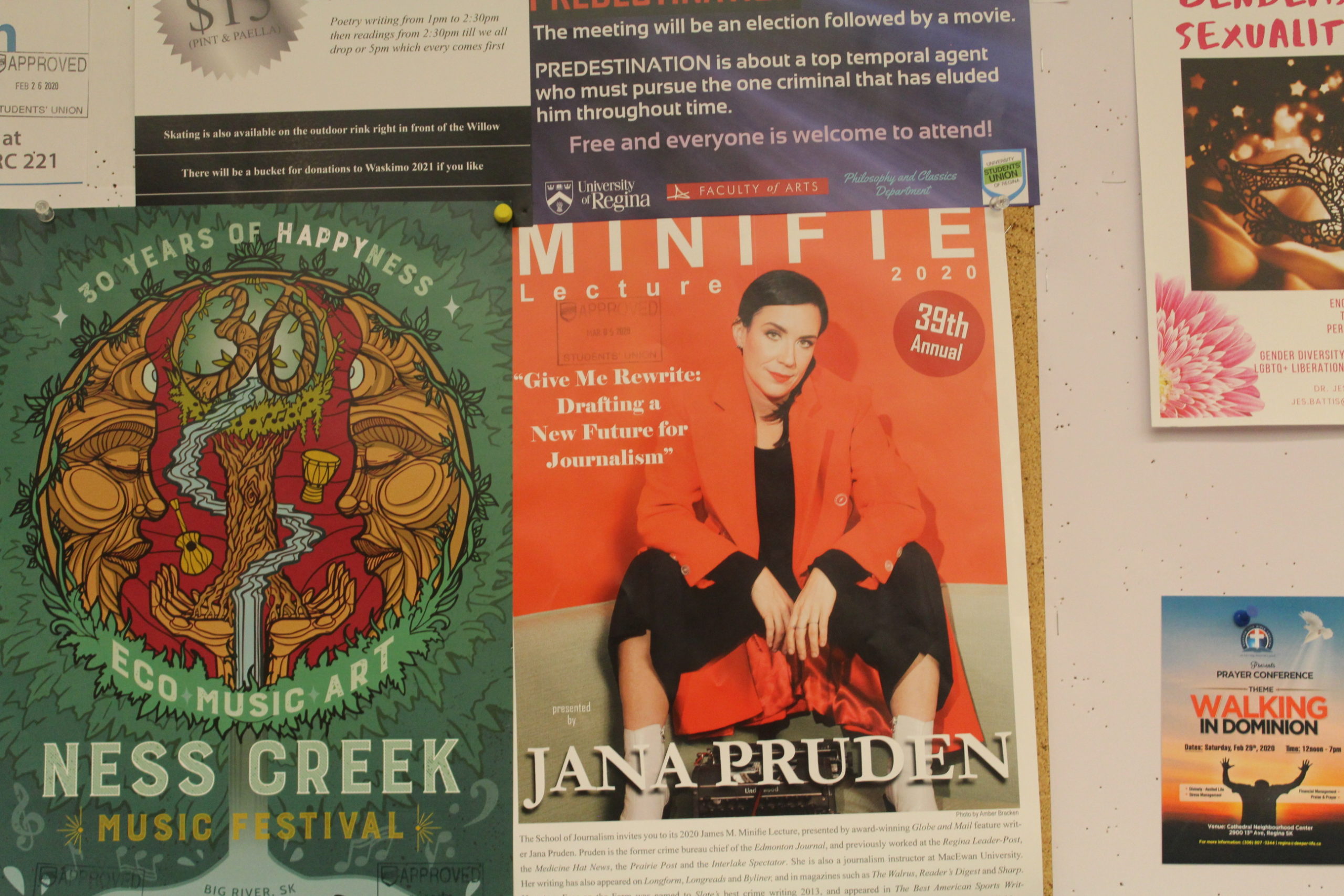FNU holds candle vigil for stabbing victims

Something as small as a candle can be seen from the sky if there is enough of them
The white streetlights were not the only thing that lit the grounds of the First Nations University (FNU) of Canada. The warm glow of over 200 candles lit the faces of those standing in support of the stabbing victims from James Smith Cree Nation (JSCN) and Weldon. The ceremony began outside at the bottom of the glass atrium tipi. Many people, students and full families alike, stood somberly as the sun lowered behind the horizon.
On Sep 4, JSCN and the nearby community of Weldon were attacked in a brutal stabbing rampage that left 11 people dead and 19 injured. Only a few hours before the candle vigil began, suspect Myles Sanderson was caught and obtained by police on Highway 11 near Rosthern, a few hours south-west of where the crimes occurred. Sanderson was later declared dead at the Royal University Hospital. At this time, the cause of death is undeclared.
At FNU, the ceremony began with the lighting of candles. Some families brought picnic blankets to sit on with their children, but many stood as the ceremony began. Even some police officers were present in uniform holding up a candle in support. Opening prayers were spoken by Elder Dennis Omeasoo and Margaret Rockthunder.
“The fire you’re carrying symbolizes the soul, the spirit, the fire within the ones that have gone on,” began Omeasoo. “Maybe even your own race relations, and I pay respect to your material, your ancestors. Each and every one of you has that fire within, we’re born with that. God gave us that. That’s spirit within us, in our hearts.”
Omeasoo went on to explain that by holding the fire, people are sending strength to those who died in the mass killing. The strength is also needed for recovering victims and their families.
“They were grandparents, they were parents, they were uncles, aunties, brothers, sisters, and I feel for them too; just like you, I feel for them,” said Omeasoo. “But God has plans, because he fortold the past that you will see hard times, and this is one of them. Each and every one of you have the ability to communicate with one another.”
Omeasoo’s opening prayer was then followed up by an honour song, sung by Arlee Weenie. As the sun sank behind the clouds, the lights in the tipis turned on in the colours of the medicine wheel. The light from the candles glowed brighter in the night.
Vice Chief Aly Bear of the Federation of Sovereign Indigenous Nations (FSIN) took the podium. “I know these past few days have been challenging, heavy,” said Aly Bear. “A lot of us are in shock and dealing with a lot of emotions. My suggestions is that you feel those emotions, and in a safe space and in a safe way. Find your supports”.
“We were coming together tonight to stand with James Smith Cree Nation, to honor the lives that have been taken so soon, but they need to be remembered as heroes, because they fought for their family members that are still alive.” Bear explained that many of the actions labelled as “senseless violence” are consequently products of intergenerational trauma and colonialism.
“At the end of the day this is colonialism, and it’s manifested itself into this violence, this lateral violence that is in our communities,” said Bear. “This is addictions and mental health issues that comes from colonialism, that comes from residential schools, that comes from trauma, on top of trauma, on top of trauma, without actually dealing with the root of the issue in healing and healing ourselves together.”
“That’s why we have to come together. It’s a scary thing to think that violence might breed more violence.” Bear said the FSIN has been helping victims’ families find places to stay near their loved ones, because returning home to JSCN right now is not an option. “They have food at the hospitals and clothing because people had to evacuate their homes with nothing, they can’t go back because their homes are crime scenes,” said Bear. “We have to pray for them, that’s why we’re here tonight. We’re here to pray for those families.”
Bear encouraged those in attendance to act as allies for the long-term recovery of all victims in the situation.
Associate vice-president for Indigenous Engagement at the University of Regina, Lori Campbell, echoed the same concerns for approaching with empathy and respect through difficult recovery periods. “When you hear our community say we need help, we need resources. We need mental health supports. We need resources for language, learning, for culture. I hope that you will take action.”
Campbell said that they had seen some of those acts of kindness that have already been shown around the campus. Someone had anonymously sent a stack of pizzas to the ta-tawaw Student Centre located in the Research and Innovation Building. According to Campbell, it was an act that was very small, but it made a big difference for staff and students. The evening concluded with a final closing song, then the dousing of candles. Across the province, two other vigils for the JSCN and Weldon victims, in Saskatoon and Prince Albert, also commenced to recognize the victims who lost their lives in the largest mass murder to ever take place in Saskatchewan. Another prayer ceremony took place at the FNU on Friday, Sep 9.









